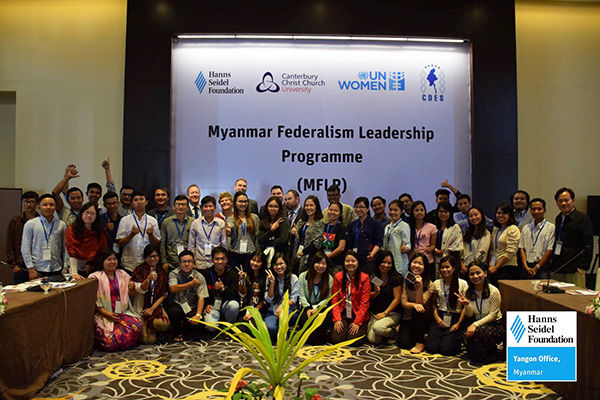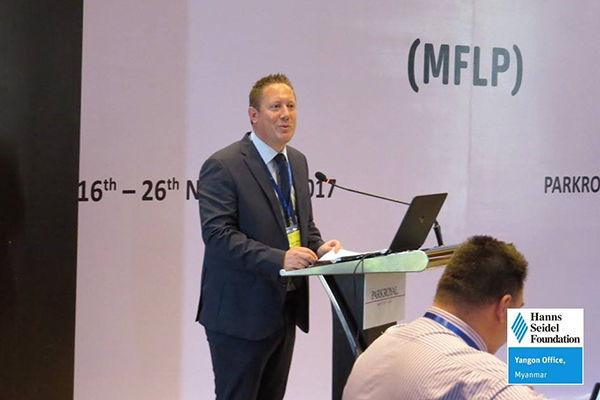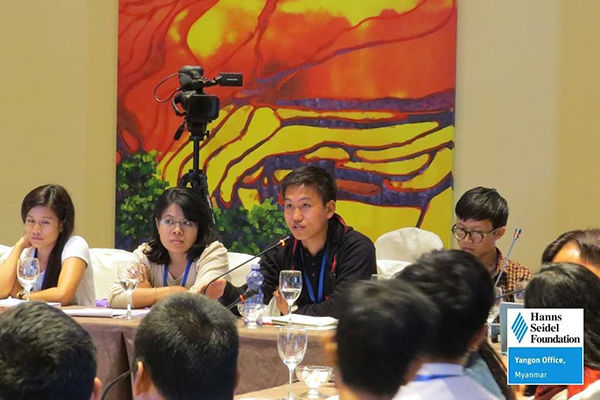Beginning of Federalism Course
Myanmar Federalism Leadership Programme (MFLP)

Participants and experts of the first Myanmar Federalism Leadership Programme (MFLP)
HSF
Achim Munz, the Resident Representative of the Hanns Seidel Foundation Myanmar opened the MFLP by saying: “this programme is designed to significantly improve the understanding of the participants on the topics of federalism and gender based approaches.” Dr. Jean D’Cunha, Head of UN Women Myanmar highlighted the importance of gender aspects in federal states: “Federalism can be a tool to reduce discrimination and inequality”, she said in a video message. Grace Ngun Za Tial, Managing Director of CDES, stated the importance of federalism for ethnic minorities.

Welcome remarks by HSF-Representative Mr. Achim Munz.
HSF
After the opening remarks and a round of introduction, the day continued with presentation of the lead experts Dr. Soeren Keil (Canterbury Christ Church University) and Dr. Christine Forster (University of New South Wales, Sydney). They talked on the topics of “Federalism and Myanmar: Historic Background” and “Gender Perspectives and the Myanmar Peace Process” respectively. Dr. Soeren Keil’s presentation triggered a discussion about the 2008 constitution. Participants argued, that the constitution does not allow states and regions to take decisions and raise funds. It was argued, that Myanmar should be less centralized- a discussion that will continue for the next 10 days. Dr. Christine Forster highlighted, that “Law is very important for gender equality”. “There must be laws that protect women and guarantee them equal rights”.

Participants had the opportunity to discuss with the experts and with each other during Q&A sessions.
HSF
